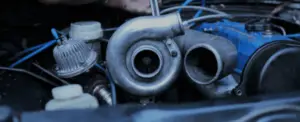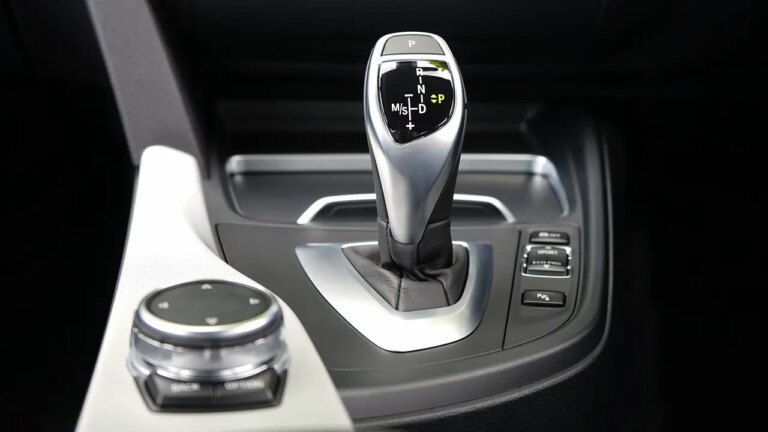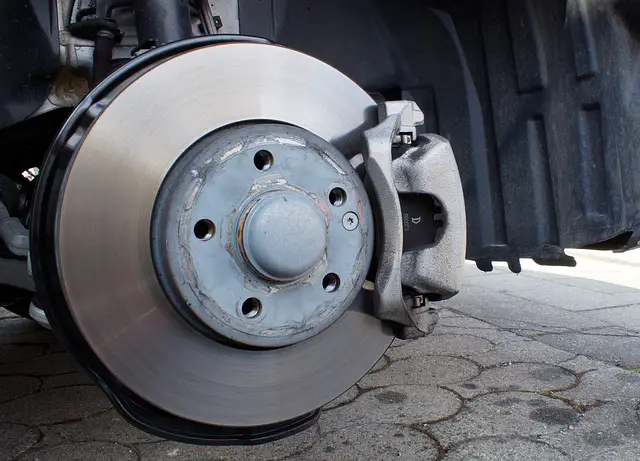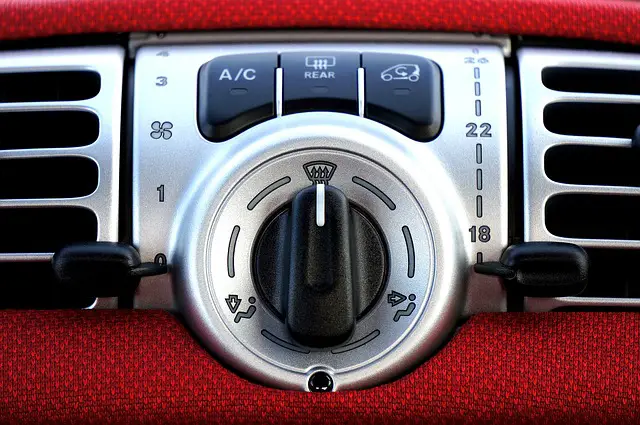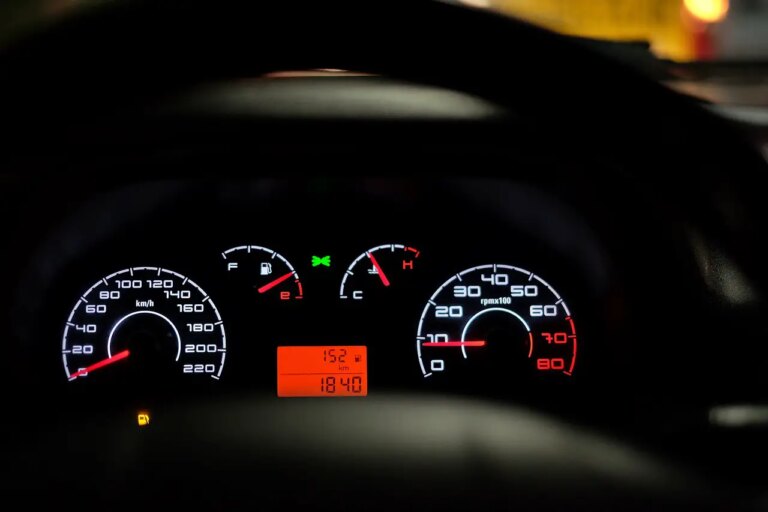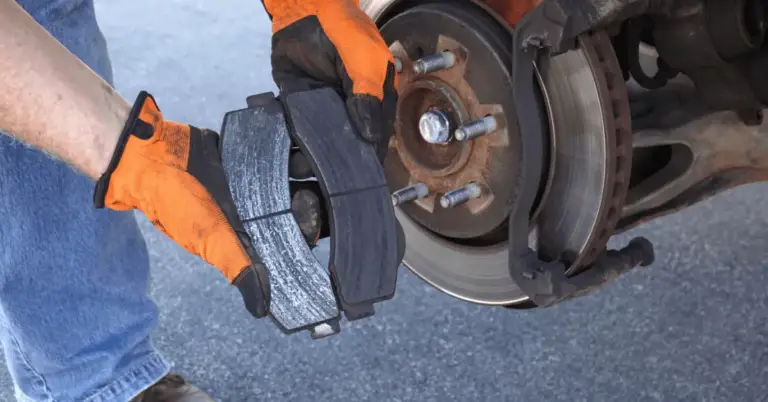There are several potential reasons for a thumping sound when accelerating, some costly but many cheap to fix.
In this article, we’ll explore the most common causes and provide tips on how to diagnose and fix them.
One of the most common causes of a thumping sound when accelerating is suspension issues.
Your car’s suspension system is responsible for absorbing shocks and vibrations from the road, and if it’s not working correctly, you’ll feel the effects.
Another potential culprit is transmission problems. If your transmission mounts are worn out or loose, you may experience thumping noise when you accelerate. Wheel and tire problems can also cause this especially if your tires are worn out or not properly inflated.
In the following sections, we’ll delve deeper into each of these potential causes and provide advice on how to fix them.
Suspension Issues
Feeling every bump in the road? Your suspension might be the culprit.
When your suspension system is failing, you’ll feel every little bump and your car will thump when accelerating.
The motor mounts and engine mount can wear out – usually after 5 years or 80,000 miles, causing the engine to shift slightly and upset the balance and result in a loud thumping noise.
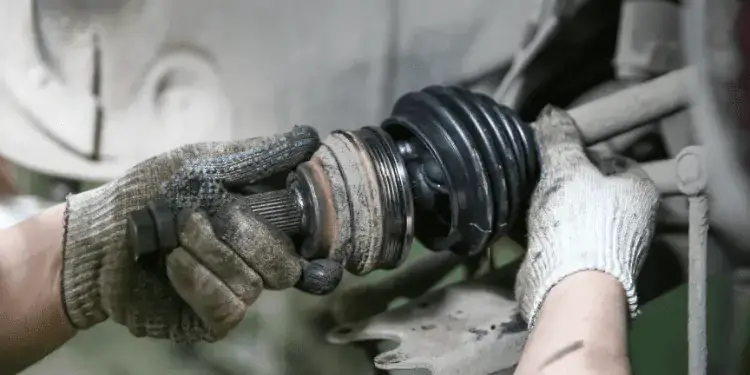
Other parts such as loose suspension components, such as the sway bar links, can also cause a thumping noise.
Car Feels Unstable At High Speeds – Help and Advice
If you’re experiencing suspension problems, don’t worry but do address these issues early on to ensure a smooth ride and to stop other parts getting damaged.
The first step is to have a professional mechanic diagnose and fix any issues. They’ll be able to replace any worn-out components and/or tighten any loose bolts or nuts.
Fixing these issues early on can save you time and money in the long run. So, take care of your car’s suspension and enjoy a smooth ride!
Transmission Problems
It could be a transmission problem.
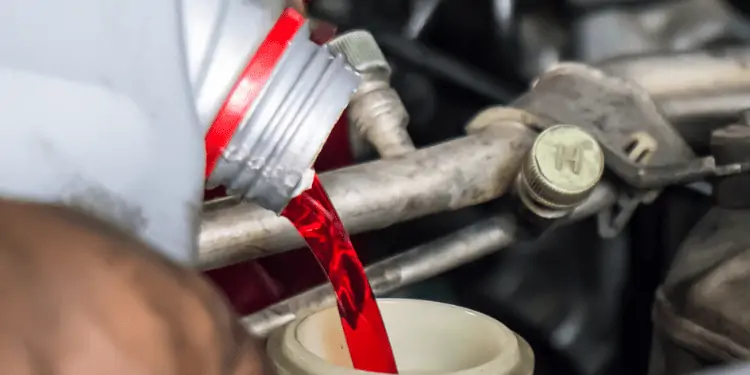
Here are the two possible causes:
- Loose or damaged transmission mounts can cause the transmission to move around, resulting in thumping noises.
- Low transmission fluid levels can cause the transmission to slip or jerk, creating thumping sensations
How To Diagnose Engine Oil or Transmission Fluid Leaks – DIY Checks
Wheel and Tire Problems
The wheel and tire problems section covers common causes of loud thumping noises and offers specific solutions for fixing them.
One of the leading causes of thumping noises when accelerating is unevenly worn tires or ones that are out of round. This issue can be addressed by rotating the tires or replacing them altogether.
Additionally, loose lug nuts can also cause a thumping sound, so ensuring they’re tightened to the manufacturer’s recommended torque can remedy the problem.
It’s important to note that tire pressure should also be checked regularly, as overinflated or underinflated tires can cause thumping noises and potentially lead to more significant issues down the road.
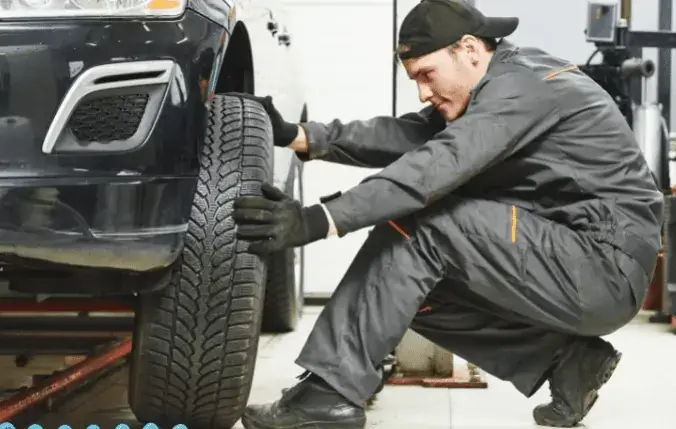
Fixes for a Thumping Sound
If you’re hearing a thumping sound when you hit the gas pedal, there are several parts to inspect.
First, check for worn-out parts like shocks or engine mounts. These can be replaced with new ones if they have ‘play’
Second, tighten any loose bolts or nuts in the suspension system or transmission mounts.
Rotate you tires from back to front just in case one is slightly out of round.
Finally, a weird one ! Make sure to check the muffler and exhaust system for damage, as this can also cause vibrations and rattling sounds. people have described these as a thump on occasions, but this is rare.
Frequently Asked Questions
How can worn or broken rods and joints affect a car’s performance?
Worn or broken rods and joints can have a significant impact on your car’s overall performance. These components are responsible for connecting the wheels to the suspension and steering systems.
When they wear out or break, the car’s handling and stability are compromised.
You may notice clunking or knocking sounds when driving over bumps. The car may feel loose or wobbly when turning. It’s essential to have these components inspected and replaced if necessary.
Driving with worn or broken rods and joints can be dangerous and lead to accidents.
Regular maintenance and inspections can help prevent these issues and keep your car running smoothly.
Repair Costs
You may be experiencing a thumping noise when accelerating due to an issue with the suspension, tires, or transmission.
The suspension could be worn out, causing the vehicle to dip lower when accelerating, resulting in a thumping sound.
Tire treads can also be uneven and cause a thumping sound when accelerating, especially if the tires are worn out.
Finally, a transmission issue could be causing the thumping noise, as the car is struggling to shift gears.
Suspension
When you hit the gas, is your suspension letting you down? If your car is thumping when accelerating, your suspension may be the cause of the issue.
To diagnose the issue, here are 3 key points to consider:
- Check the shocks, struts, and springs for signs of wear and tear.
- Inspect the ball joints, bushings, and control arms for any damage.
- Check the wheel alignment to ensure the suspension components are all functioning properly.
If any of these suspension parts are failing, it could cause your car to thump when accelerating.
Tires
Another cause of a thumping noise when accelerating could be due to the tires on your car.
Tires can become worn over time, resulting in increased road noise when driving. If the treads on your tires aren’t deep enough, this could cause a thumping noise when accelerating.
If the tires aren’t properly inflated, then this can also cause the thumping noise, as the tires will be bouncing off the road.
It’s important to make sure that the tires on your car are properly inflated and that the treads are deep enough. These can both affect the overall performance of your car and could lead to a thumping noise when accelerating.
Transmission
Investigating whether a thumping sound when accelerating could be caused by a transmission issue, one may find that a faulty transmission can indeed cause such a noise. This could be due to a number of potential issues:
- Mechanical Problems:
- Worn bearings
- Clutch wear
- Broken drivetrain components
- Electrical Problems:
- Wiring issues
- Sensor malfunctions
- Erratic solenoid performance
- Fluid Problems:
- Low fluid
- Contaminated fluid
- Clogged filters
What Repairs Can I Do Myself?
If you’re feeling brave, there are some repairs you can do yourself to stop the thumping when you hit the gas.
This includes checking the fluid levels, inspecting the transmission filter and fluid for contamination.
You should also check the transmission mounts, axles, and any other components that could be causing the thumping. However this beyond most people.
If you find any issues, you may be able to repair them yourself using the proper tools, but if you’re unsure, it’s best to consult a professional mechanic.
Will It Get Worse If I Leave It?
Leaving the thumping unresolved could make it worse – but how much worse? Depending on the root cause of the thumping, it could result in more extensive damage to your engine, transmission, or internal components.
The thumping noise may be an indication of an underlying problem that is likely to worsen over time, potentially leading to major repairs or a complete engine replacement if left unchecked.
Conclusion
So, now you know the most common causes of thumping sounds when accelerating in your car. Remember, identifying and fixing the issue quickly is key to ensuring your vehicle runs smoothly and safely.
Whether it’s a suspension issue, transmission problem, or wheel and tire problem, it’s important to take your car to a mechanic or auto repair shop for a proper diagnosis and repair.


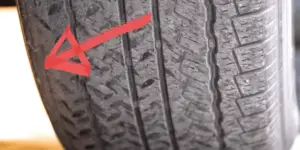
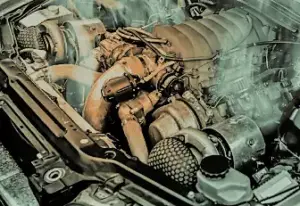


![Do I Have Shocks or Struts? [ANSWERED] struts](https://carzaza.com/wp-content/uploads/2024/02/struts-300x161.png)
